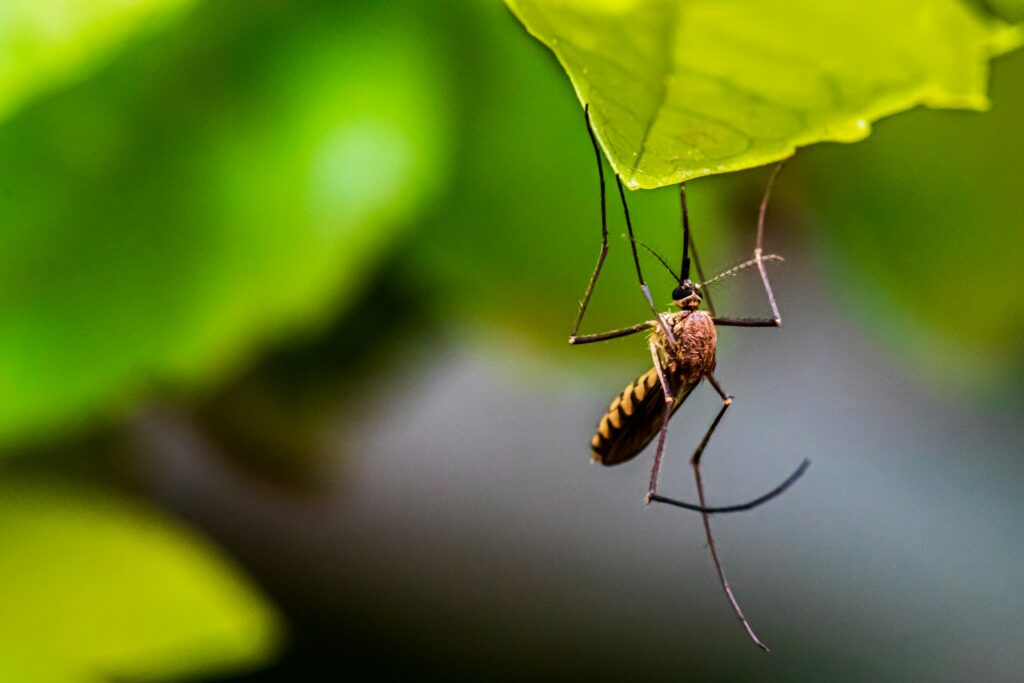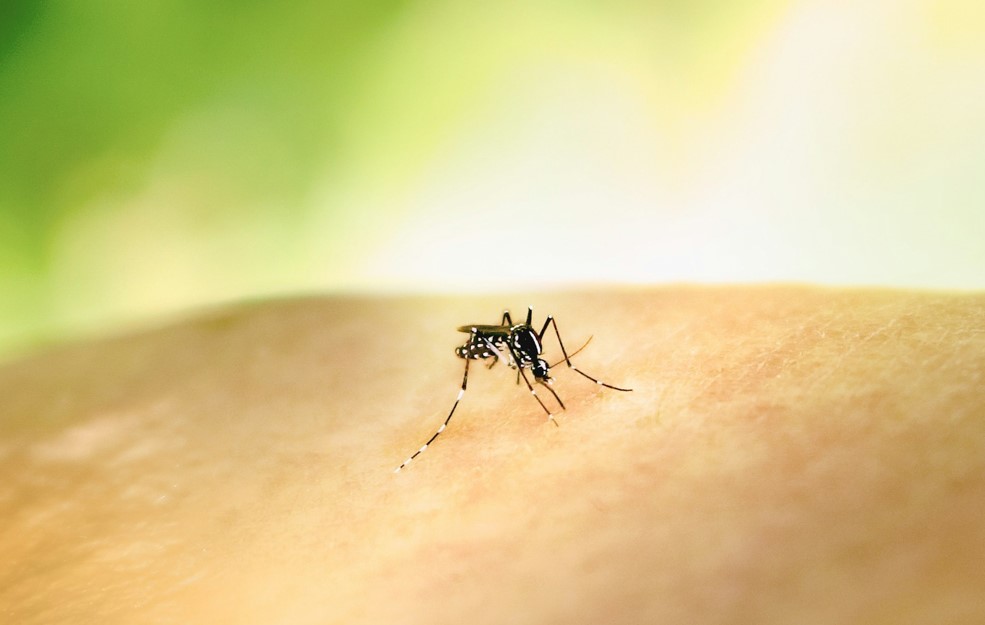If you’re planning a trip to Indonesia, it’s important to be aware of the risk of malaria, especially if you’re heading to rural or forested areas.
While the islands and cities may be known for their natural beauty and cultural sites, malaria is a real concern in certain regions. This guide will cover the essential steps to prevent malaria while traveling in Indonesia, so you can have a safe and enjoyable trip.
Risk Level of Malaria in Indonesia
The risk of malaria in Indonesia varies depending on where you plan to travel – with rural, remote, and forested regions posing the highest threat.
Areas known for their malaria transmission include:
- Papua and West Papua
- Kalimantan
- Sumatra
- East Nusa Tenggara (including Flores and Timor)
Indonesia’s rainy season, which runs from November to March, increases the mosquito population, and therefore, the likelihood of malaria transmission. Understanding the risks and taking proper precautions is key to staying healthy on your journey.
What about Bali specifically?
Malaria transmission does occur in Bali, and while the risk is lower than forested regions with high concentrations of mosquitos, there are still cases of malaria in Bali. As a precaution, many travelers prefer to bring preventative anti-malarial medication along. – just in case malaria symptoms appear.
1. Consult a Doctor for Anti-Malarial Medication
Before heading to Indonesia, it’s a good idea to consult a travel doctor about the need for anti-malarial medication. The necessity of taking such medication depends on where you’re going and the time of year.
If you’re planning to visit high-risk regions, such as Papua or West Papua, many doctors will recommend taking a prophylactic malaria medication like Malarone. Malarone is a popular option for travelers because it is highly effective and has relatively mild side effects. Other options include doxycycline or mefloquine, which are often prescribed based on the traveler’s medical history and trip length.
Connect with an Online Travel Doctor ➜
Not sure where to get your prescription? In the link above, you can skip the in-person clinic visits by using an online platform like Runway Health, which offers easy, quick consultations and prescription delivery straight to your doorstep.
2. Use Insect Repellent Correctly
Repellent is a traveler’s best friend when it comes to avoiding mosquito bites. The key is using the right type—one that contains DEET, which is proven effective against malaria-carrying mosquitoes. Look for repellents with a concentration of at least 20-50% DEET, or, if you’re sensitive to DEET, opt for picaridin as an alternative.
- Apply the repellent on all exposed skin and don’t forget to reapply it after swimming or sweating.
- It’s particularly important to apply repellent during dusk and dawn, when mosquitoes are most active.
- Don’t forget—you can also apply repellent over your clothing for extra protection.
3. Choose Your Accommodations Wisely
Your choice of accommodation can play a big role in malaria prevention. In Indonesia, many urban hotels and resorts have air conditioning and screened windows, significantly reducing your risk of mosquito bites. However, in more remote areas, you may encounter simpler lodging where mosquitoes can easily enter.
If you’re traveling to rural regions, ask about mosquito nets or screened windows before booking. It’s also helpful to choose accommodations with fans, as the cool air makes it harder for mosquitoes to settle nearby. Staying in well-ventilated areas can go a long way in preventing bites.
4. Wear Protective Clothing
An easy and effective way to prevent malaria is to wear protective clothing when you’re outside, especially in the mornings and evenings when mosquitoes are most active. Choose long-sleeved shirts, long pants, and socks. Light-colored clothing is best since mosquitoes are less attracted to light colors compared to darker shades.
If you’re heading into high-risk areas, consider treating your clothing with permethrin, a long-lasting insecticide. This can provide additional protection for travelers who spend a lot of time outdoors, especially in forested or rural parts of Indonesia.
5. Avoid Mosquito-Friendly Environments
Certain environments are more likely to harbor mosquitoes. Areas with standing water, such as rice fields, ponds, and slow-moving rivers, are perfect breeding grounds for mosquitoes. If you’re exploring rural Indonesia, particularly in provinces like Kalimantan or Sumatra, be extra cautious near these water sources.
Dense jungle areas are also common mosquito habitats. If you plan to hike or trek in Indonesia’s rainforests, it’s important to take additional precautions—wearing repellent and protective clothing are a must.
6. Sleep Under a Mosquito Net
If you’re staying in an area with a high risk of malaria—especially rural or remote regions—sleeping under a mosquito net is a good idea (if available).
Make sure the net is treated with insecticide for extra protection. Many accommodations in rural parts of Indonesia may not have air conditioning or sealed windows, so bringing your own treated mosquito net can help you sleep soundly, knowing you’re protected.
When setting up your net, tuck it securely under the mattress and check for any holes or tears that mosquitoes could sneak through. Even if you’re staying in urban or low-risk areas, using a net can provide an extra layer of safety.
7. Recognize the Rainy Season’s Impact on Mosquito Populations
Indonesia’s rainy season creates prime conditions for mosquito breeding, making malaria a greater risk during this time. The rainy season typically runs from November to March, with increased mosquito activity during these months.
If you’re visiting Indonesia during the rainy season, extra caution is needed. Reapply insect repellent frequently and make sure to wear protective clothing. While the rains make the landscape lush and beautiful, they also heighten the malaria risk in many parts of the country.
8. Stay Hydrated and Healthy
Maintaining your health while traveling can help you avoid infections and illnesses. While staying hydrated doesn’t directly prevent malaria, keeping your body in peak condition helps you recover from or handle any illness more effectively.
The heat and humidity in Indonesia can quickly lead to dehydration, which may compound symptoms if you were to fall ill. Carry a reusable water bottle with you and ensure you’re drinking clean, safe water.
9. Recognize Malaria Symptoms and Get Help Early
Even with all the precautions, there’s always a chance you could still contract malaria. That’s why it’s essential to recognize the early symptoms and seek medical help immediately.
Malaria symptoms often include:
- Fever and chills
- Headache and fatigue
- Nausea
These symptoms can show up days or even weeks after being bitten by an infected mosquito. If you experience any of these while in Indonesia, or even after returning home, seek medical attention immediately. Let your doctor know about your travel history and any possible mosquito exposure.
One Last Reminder:
If your journey takes you beyond the cities and into rural or forested areas, refer back to this guide to help prepare. By taking a few simple precautions—like using repellent, wearing protective clothing, and staying in screened or air-conditioned accommodations—you can drastically lower your risk of contracting malaria.
For travelers needing anti-malarial medication, Runway Health offers an easy online prescription service. You can get the medication delivered right to your home, which helps you avoid the hassle of in-person clinic visits.

